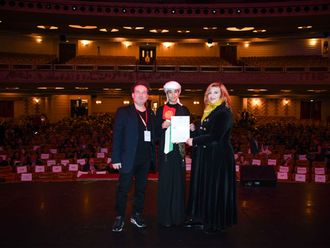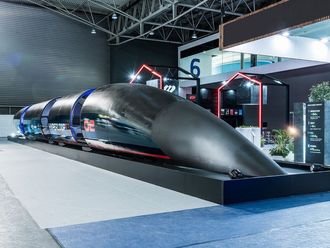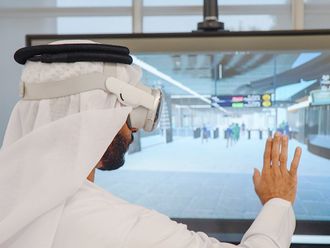The Philippines will offer "all-out support" to the growing anti-terrorism coalition following the attacks in the United States that left thousands dead, President Gloria Arroyo said yesterday.
"Whatever support is needed and we are capable of doing, is what we will do. It's all-out support," Arroyo told a press forum just after returning from a four-day visit to Japan.
"Of course, the United States is taking the lead in strategizing, so what the U.S. would feel that the Philippines can do is what we will do," she added.
"We're taking very seriously the UN resolution" calling on all states to help bring the perpetrators of Tuesday'a attacks to justice, she said.
Arroyo said she raised the issue with Japanese Prime Minister Junichiro Koizumi during her visit and they discussed specific measures to combat terrorism although she would not disclose them.
She said both countries expressed readiness to extend "utmost assistance" to the United States as part of the international coalition.
Earlier, Vice-President and concurrent foreign secretary Teofisto Guingona said: "We stand behind the call by the United States for a coalition to fight international terrorism and so we are responding to that."
The Philippine government will pursue its international commitment to the U.S., an ally, despite caution from opposition senators who said the country needs Filipinos to combat terrorism being spawned by the hostage taking Abu Sayyaf group in southern Philippines, Guingona added.
"President Gloria Macapagal-Arroyo has already said we stand behind the call of the U.S. for a coalition to fight international terrorism. We are responding to that," said Guingona, adding, "Any legitimate move that will help the objective, we are committed (to that)."
It is not yet known if the Philippines would be helping the U.S. by sending troops, a small or big force, or an intelligence group.
The government has promised to open the runway and piers of the former U.S. Clark Air Base in Angeles, Pampanga and the Subic Naval Base in Olongapo, Zambales (now used as commercial entities) for the use of the coalition forces. The Philippine senate rejected the U.S. proposed extension of the defunct Military Bases Agreement in 1991.
"They would need the former U.S. war facilities to perhaps refuel so they can proceed to accomplish the mission of ferreting out (the attackers). It's a humanitarian movement against terrorism," Guingona said.
Joining the coalition would help the Philippines fight its own terrorists in its home ground, Guingona explained, but added the Philippine government would not allow foreign intervention in its effort to stop terrorism in its own land.
"We have our own terrorists here. That is a primary concern to U.S. If it (the Abu Sayyaf Group) is established as part of international terrorists (then the country can get assistance in fighting them)," said Guingona.
Alleged international terrorist Osama bin Laden is believed to have masterminded the attacks on U.S. facilities.
"The primary suspect is bin Laden who is related to a certain Jamal Khalifa who has two Filipina wives," said Guingona.
"There seems to be a connection between the Abu Sayyaf and the international terrorists who were responsible for the destruction of the World Trade Centre and the Pentagon," said Guingona.
Manila offers full support for anti-terrorism coalition
The Philippines will offer "all-out support" to the growing anti-terrorism coalition following the attacks in the United States that left thousands dead, President Gloria Arroyo said yesterday.












